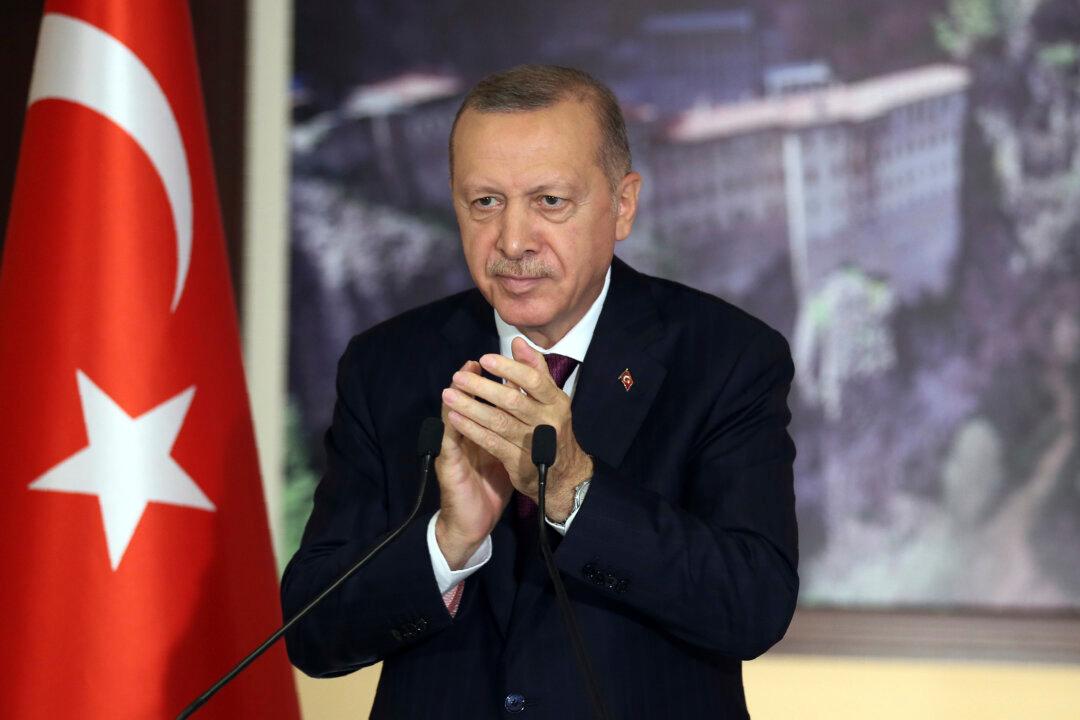ISTANBUL—Turkish President Tayyip Erdogan called for an equal “two-state” solution in Cyprus during a visit on Nov. 15 to the breakaway Turkish Cypriot north of the island, drawing a rebuke from the internationally recognized government in the south.
Erdogan also said Turkey and Northern Cyprus would no longer tolerate what he called “diplomacy games” in an international dispute over rights to offshore resources in the Eastern Mediterranean.





